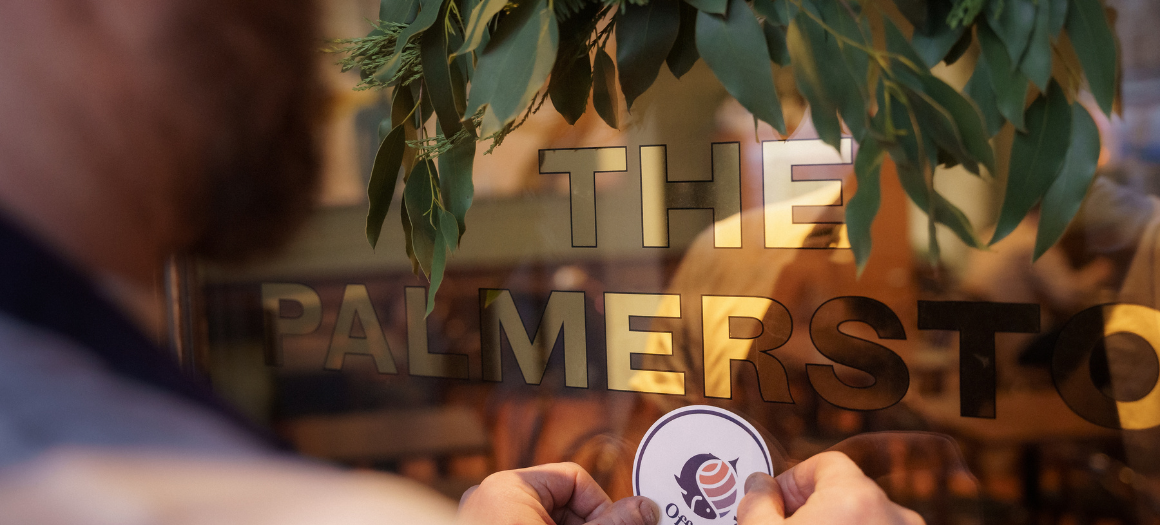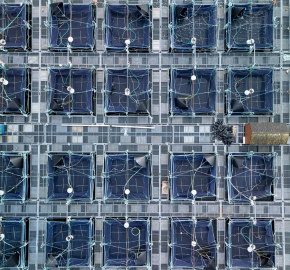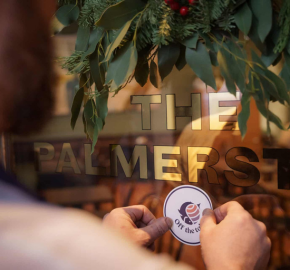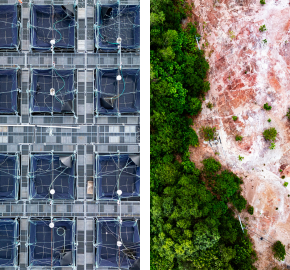Top Edinburgh chef joins campaign to take farmed salmon off the table

Award-winning Edinburgh chef Lloyd Morse has today called on fellow chefs and restaurants across Scotland and the UK, to join in him refusing to serve farmed salmon at their restaurants.
The head chef and co-owner of The Palmerston, recently named one of the top 100 restaurants in the UK (1), is part of a new campaign urging chefs and restaurants to take farmed salmon off their menus, on account of the industry’s immense environmental, sustainability and welfare issues.
“Chefs across the UK need to understand how atrocious farmed salmon is. It shouldn’t be in our waters and it shouldn’t be in our restaurants”.
Lloyd Morse
Palmerston
Off the table, led by the UK charity WildFish and supported by a number of NGOs across Scotland and the UK, aims to raise awareness of the dire environmental impacts of Scotland’s intensive open-net salmon farming industry, as well as the associated welfare issues, such as high mortality, and sustainability concerns.
On average, 1 in 4 farmed salmon will not survive the period that they are confined in open- net farms in the Scottish west coast and islands; statistics published last month by the salmon farming industry revealed that 2.8 million salmon died from diseases and other lethal conditions on Scottish farms in September alone.
Open-net farms are plagued by parasitic sea lice, which disperse from the farms and can infect and kill migrating wild salmon and trout. Since the 1970s, global populations of wild Atlantic salmon have collapsed; recent data has shown that wild salmon and sea trout catches in Scottish rivers last year were the lowest since records began in 1952, and in January the Scottish Government agreed that the wild salmon population was in crisis.
“A food system that is increasingly reliant on antibiotics and continues to consume wild caught fish for feed and parasite control is inherently unsustainable. Fresh seafood should not come at the expense of our planet’s health or animal welfare, which is why we’re calling on chefs and restaurants to take farmed salmon off their menus.”
Dr Matt Palmer
Farmed Salmon Campaigns Manager at WildFish
A recently published report from the Veterinary Medicines Directorate showed that salmon farming is the only livestock industry that is increasing its use of antibiotics, with 8.9 tonnes used in 2021; this is double the amount used in 2017, when data was first published. (2)
Concerns about intensive open-net salmon farming have grown in recent years around the globe, with increasing numbers of national and state governments banning the industry from its waters. Last month, Washington State became the latest to ban open-net fish farms, joining California, Oregon and Alaska, as well as Argentina and Denmark.
Contrasted with this, and in spite of growing evidence of its negative impact on the environment, the Scottish Government continues to support the industry, most recently awarding grants to a number of salmon farming companies, under its Marine Fund Scotland, which purports to support an “innovative and sustainable marine economy”. (3)
“The clock is ticking on this unsustainable industry. The Scottish Government must recognise the damage being done – to our environment, wild fish, and our coastal communities – and take action, before it’s too late.”




There is no,argument . Sea farmed s’il on must stop asap. End of.
Shouldn’t you promote the alternative salmon suppliers?
Hi Peter, thank you for your question. Our latest campaign Off the table is designed to help with this. The campaign calls on chefs to take farmed salmon off their menus and in doing so suggest alternatives. Thank you, Immy
Salmon farming with all its ills is driven by its economic power – of over £600 million a year and it provides work in areas of high unemployment. Putting salmon farms in the open sea would get rid of many existing issues but would create others! Closed containment another option.